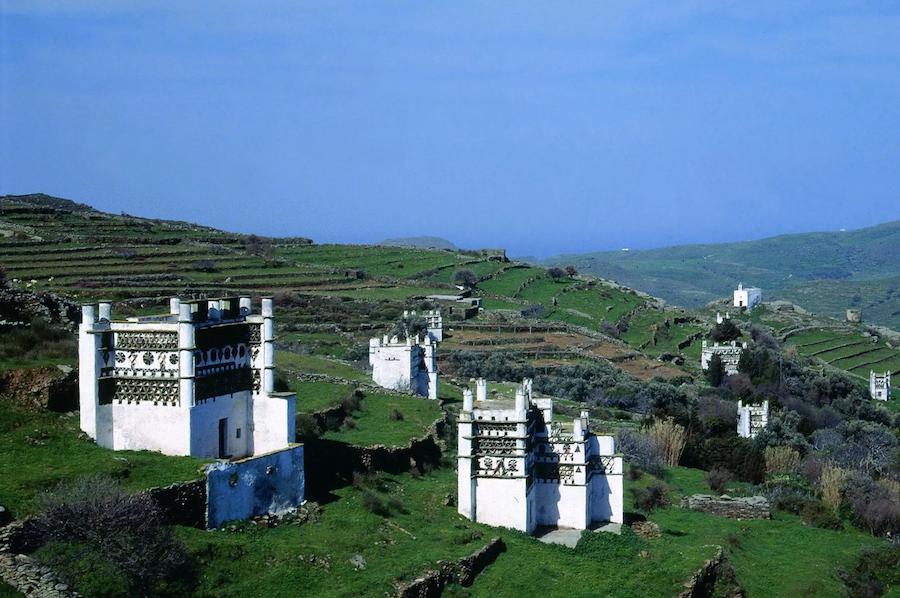Mystic, humble, charming Tinos – the island with the beautiful rocky crags that are home to eagles, cool meadows, and surf-lapped shores. The island is characterized by the harmony between the crags’ wild beauty and the tranquillity of the verdant hills and meadows, the alternating bands of brown and green, the stone fences, the small country churches, and the dovecotes. Tinos has a long tradition in painting and sculpture – something evident from the proliferation of carved marble pediments and embellishments. The island also boasts some 600 dovecotes which all face west to protest the birds from the frigid northerly winds in winter.
In Tinos town, fresh fruit and vegetables are sold at the daily street market at Pallada, between the old and new harbour. Tinos harbours many gastronomic secrets such as a local artichoke, smaller and with a very tender heart, used for making artichoke pies and myriad other dishes. Other local dishes are sun-dried tomatoes fried in batter, froutalia, the vinegar-based savore sauce with grape must syrup and stuffed calamari.
The fertile land is covered with endemic flora like capers, mushrooms, spiny chicory, dittany, thyme, wild artichokes, oregano, prickly pears, sage, chamomile, and all types of aromatic herbs used in tisanes.
Locals raise cows, sheep, goats, poultry, and rabbits, while the dovecotes scattered over the island suggest pigeons are raised too. Cured pork louza, sausage, a garlicky cold cut called skordato, and ham are especially tasty. Discerning palates also revel in the taste of Tino’s milk, local graviera, the soft sharp-tasting kopanisti cheese, strongylo (a round cheese), petroma (unsalted cheese), the soft white fresh anthotiro cheese, malathouni (which is shaped in a reed mold), the kariki, a unique blue cheese, as well as sun-dried tomatoes, raki, amygdalota, honey-drizzled fried dough strips (kserotigana), psarakia, light meringue, and sweet cheese pies made with local mizithra. The island’s beekeeping traditions feature two types of hives – melissothyrides and miselia – that yield authentic thyme honey.




